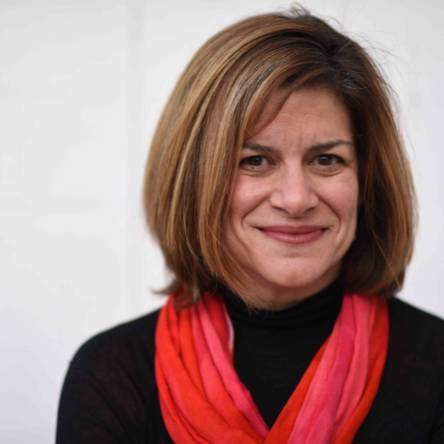Bari Nan Cohen Rothchild

Bari Nan Cohen Rothchild is a writer, editor, parent and advocate who believes firmly that Jewish values are expansive and portable. Perhaps this is because she grew up as an “itinerant Jew,” venturing out of her home congregation in Vermont to convene with other Jewish teens at Camp Ramah Palmer and at USY events.
The idea of living Jewish values anywhere (and everywhere!) came with her to college at Brandeis University, on study abroad in Jerusalem, and ultimately to Park City, UT, where she and her husband settled over 20 years ago. She has led Kabbalat Shabbat services at Deer Valley Resort’s Sunset Cabin, taught religious school (which was scheduled on weeknights to accommodate weekend recreation habits of the congregation) to aspiring Olympians and often contributed challah to her younger son’s ski jumping team’s potlucks. (Is Temple Har Shalom the only congregation in North America with multiple Nordic athletes? Is Park City Ski and Snowboard Nordic the only ski jumping club in North America which has had to adjust practice schedules around Bnei Mitzvah? Perhaps.)
In addition to her admiration for Tivnu and the values it espouses and teaches, Bari Nan brings with her two decades of volunteer and consulting experience for nonprofit organizations, including Temple Har Shalom in Park City; Park City READS, where she is a Certified Dyslexia Advocate; Park City Rotary; and a variety of additional educational and social-equity focused organizations.
Professionally, Bari Nan has held senior editorial roles at national publications, including SELF, Good Housekeeping and YM. Her work has appeared in numerous other publications, including Glamour, Parenting, Woman’s Day and The New York Times.
Bari Nan became aware of Tivnu through a founding board member—a friend she met while studying at Hebrew University. The organization became a part of her family’s life in 2021, when her son Lance joined Tivnu 8, before enrolling for his own educational journey at Brandeis.
Lance came away from the program with a deeper understanding of the challenges in creating a just society, the strength of well-formed friendships, and the conviction that “Everyone should take a gap year.” She and her husband value much about the year their son spent as a Tivnunik—in particular, the communities which the Tivnuniks were given the tools to build, physically, emotionally, experientially.